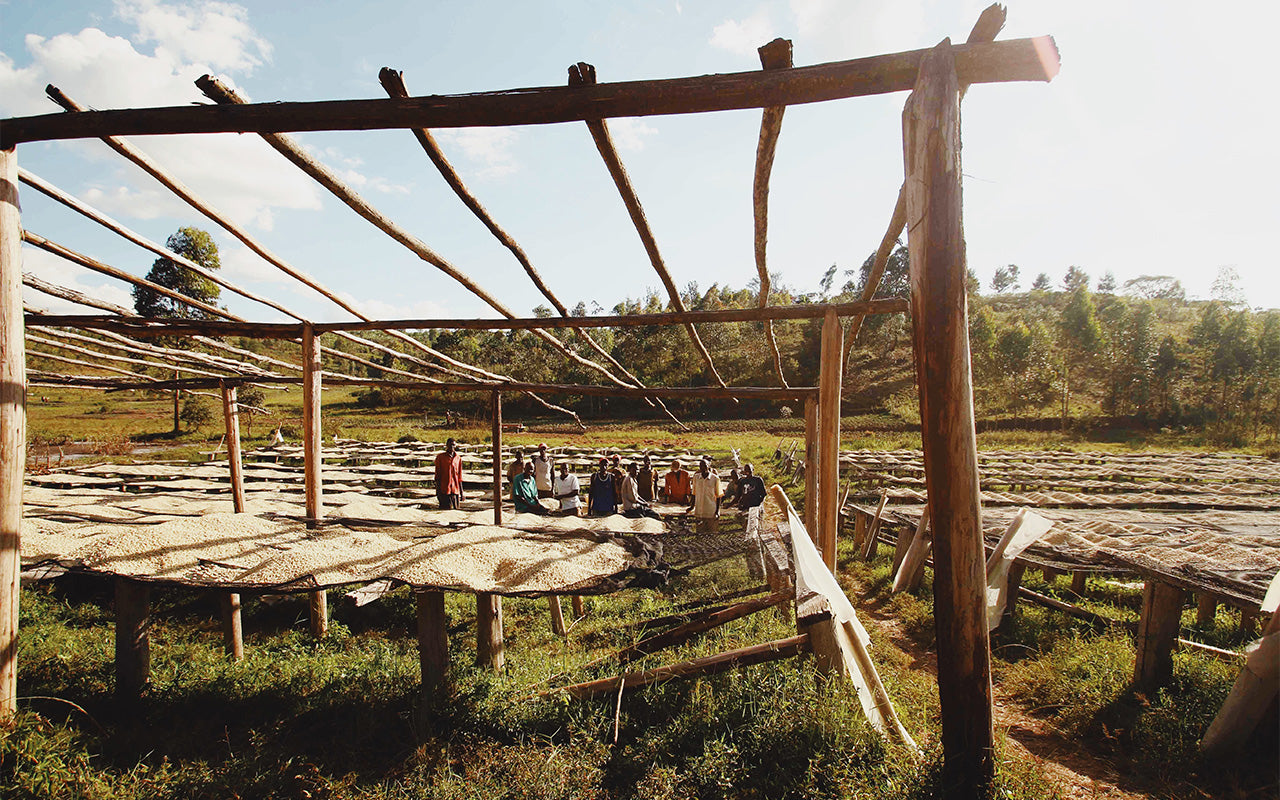
Gatara
Coffee Production in Gatara, Burundi
1. Historical Background
Gatara is a commune located in the Kayanza Province of northern Burundi, a region long recognized for its high-quality Arabica coffee production. Coffee was introduced to Burundi during the 1930s under Belgian colonial rule, and Gatara, like much of Kayanza, quickly became one of the country’s most important coffee-producing zones. The area's elevation, volcanic soil, and temperate climate created ideal growing conditions for Bourbon varietals, which were widely planted. In time, central washing stations—including the Masha Washing Station established in 1989—became pivotal in Gatara’s emergence as a key contributor to Burundi’s specialty coffee scene.
2. 20th Century Growth and Regional Development
The development of centralized infrastructure such as Masha allowed for improved processing, traceability, and quality control. Farmers in Gatara typically operate small plots—often under 0.25 hectares—and grow coffee as a primary cash crop. Cooperative structures and regional washing stations provided these smallholders with access to global markets. By the 2000s, as Burundi transitioned toward liberalized trade, washing stations in Gatara began to attract attention from specialty buyers seeking high-altitude Bourbon coffees with vibrant and complex profiles.
3. Present-Day Production and Processing Trends
Today, coffee production in Gatara centers around a network of over 2,500 smallholder farmers who deliver ripe cherries to washing stations like Masha. Situated at an elevation of approximately 1,670 meters above sea level, Masha and similar stations process predominantly Red Bourbon coffee using traditional washed methods, including double fermentation and prolonged drying on raised beds. The quality of cherry selection, coupled with meticulous post-harvest practices, results in coffees with clarity, balance, and vibrant flavor. Honey and natural processes have also been explored, but washed coffees remain the dominant export.
4. Market Dynamics and Quality Recognition
Coffees from Gatara—particularly those processed at the Masha Washing Station—have achieved strong recognition in international markets. Masha was awarded a top placement in the 2012 Cup of Excellence, solidifying Gatara’s reputation for excellence. Flavor profiles are typically sweet and fruit-forward, with tasting notes that include honey, plum, caramel, black tea, and citrus zest. Exporters working in the region partner directly with washing stations to bring traceable microlots to specialty roasters worldwide, often fetching premium prices. While challenges such as limited infrastructure and access to agronomic support persist, the region benefits from strong cooperative models and growing buyer interest.
5. Outlook
Gatara is poised to remain a leading contributor to Burundi’s specialty coffee sector. With established infrastructure, motivated producer communities, and favorable agroecological conditions, the region is well positioned to expand both its volume and its quality of coffee exports. Ongoing investments in training, climate resilience, and market access—particularly through washing station-led initiatives—will be essential to maintaining and growing Gatara’s global reputation. As the specialty market continues to seek clean, high-elevation East African coffees, Gatara is expected to play an increasingly important role in shaping Burundi’s coffee identity on the world stage.
Learn more about the Origin
Shop Coffees from Gatara
-
Example product title
Regular price $19.99 USDRegular priceUnit price / per -
Example product title
Regular price $19.99 USDRegular priceUnit price / per -
Example product title
Regular price $19.99 USDRegular priceUnit price / per -
Example product title
Regular price $19.99 USDRegular priceUnit price / per

